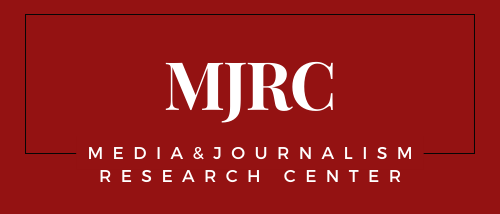MJRC Launches Research Project on Media and Politics Across 40+ Nations Prepping for 2024 Polls
Our new research project, Decoding the Power Play: Media and Elections in 2024, is aimed to chart the interplay among media, political parties and the business sector in a highly charged electoral year.
With elections slated to take place in dozens of countries next year, study of the rapidly evolving media landscape and the unpredictable nature of politics is essential. There are numerous studies focusing on social media content during election periods, yet the influence of the media market’s structural conditions on election fairness and outcomes receives less attention.
Decoding the Power Play: Media and Elections in 2024 is planning to fill that gap by systematically examining and tracking two crucial areas that significantly shape the dynamics of the electoral process: media ownership and political finance. In addition to that, the project aims to collect data and information about the role social networks play in each national context.
On the one hand, Decoding the Power Play: Media and Elections in 2024 aims to uncover the connections between media corporations and political entities, whether they are politicians or political groups. Secondly, the project aims to map the sources of political finance and the main recipients of this funding. Finally, the project also wants to examine the relationships on social networks between media owners and political figures and chart the political expenditure on social media, categorized by tech platform and spender.
As we approach elections in a bevy of nations, including major geopolitical players and some of the world’s most populous countries such as the United States, the European Union, potentially the UK, India, Russia, Indonesia, South Africa, Mexico, Pakistan, South Korea, a string of European countries, and over a dozen African nations, the year 2024 presents a unique opportunity to observe a range of political experiences. These will provide insights into global political trends and their potential impact on the world order and the state of democracy in the coming decade.
The project’s main goal is not to forecast election outcomes or monitor disinformation patterns. Rather, it seeks to shed light on the emerging dominant political structures and the media entities that bolster and magnify their messages. This would improve our understanding of the information and media ecosystem that will develop over the next decade.
The research and data collection, conducted by a research team led by Marius Dragomir, the MJRC Director, began with a preparatory phase from January to June 2023, and will extend with a more intensive data collection phase until March 2025. The collected data will be used to draft a comparative analytical report and a series of academic articles.
The project is highly collaborative, with interested researchers, particularly academic institutions that have the necessary human resources and skills, being welcome to join in.
See more information on the project’s page.
Photo: Licensed under the Unsplash+ License
Invest in independent media research and join a community of practice.
Your contribution supports MJRC’s investigations and global analysis. As a supporter, you can receive early access to new findings, invitations to small-group briefings, inclusion in our Supporters Circle updates, and the option to be listed on our Supporters Page.
Contribute to MJRC
